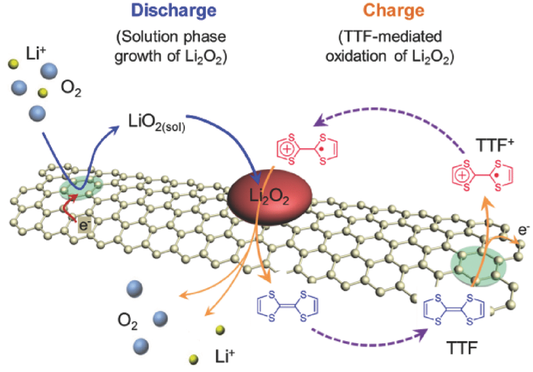The Ultimate Guide: 5 BHT Benefits

Welcome to this comprehensive guide on the wonders of BHT, an incredible substance with a myriad of applications and advantages. BHT, short for Butylated Hydroxytoluene, is a synthetic compound that has gained prominence in various industries due to its remarkable properties. This article will delve into the five key benefits of BHT, showcasing its versatility and importance in modern-day applications.
Antioxidant Properties: BHT’s Superpower

One of BHT’s most renowned qualities is its exceptional antioxidant capabilities. Acting as a powerful shield, BHT safeguards various materials from the damaging effects of oxidation. This antioxidant prowess finds extensive use in the food industry, where BHT plays a crucial role in preserving the quality and longevity of food products.
Imagine a bustling bakery, where fresh-baked goods line the shelves. BHT steps in as a silent hero, preventing the delectable treats from spoiling by neutralizing harmful free radicals. Its antioxidant action not only extends the shelf life of these goodies but also maintains their flavor, aroma, and overall quality. BHT's presence ensures that the bakery's offerings remain fresh and delectable for a longer period, delighting customers and minimizing food waste.
BHT’s Role in Food Preservation
In the food industry, BHT is a trusted ally in the battle against spoilage. Its ability to inhibit lipid oxidation is particularly valuable for products rich in fats and oils, such as butter, margarine, and various baked goods. By stabilizing these lipid-rich foods, BHT prevents rancidity, off-flavors, and unpleasant odors, ensuring that consumers enjoy fresh and delicious treats.
Consider the example of a popular snack brand that specializes in potato chips. The crunch and flavor of these chips are attributes that consumers adore. However, without proper preservation, the chips can quickly lose their crispness and develop an unpleasant taste. Enter BHT, the unsung hero, working behind the scenes to maintain the chips' freshness and mouthwatering appeal. By incorporating BHT into the packaging or directly into the chip recipe, the snack brand can ensure that each bag of chips delivers the same satisfying experience, regardless of the time passed since production.
Furthermore, BHT's antioxidant properties extend beyond snack foods. It is also utilized in the preservation of meat products, preventing the oxidation of fats and ensuring that the meat remains tender and flavorful. Whether it's a juicy steak or a delicious sausage, BHT plays a vital role in maintaining the quality and safety of these protein-rich foods.
| Food Category | BHT's Impact |
|---|---|
| Bakery Goods | Prevents staleness and maintains freshness |
| Snack Foods | Preserves crunch and flavor |
| Meat Products | Prevents oxidation, ensuring tenderness and taste |

Stability and Longevity: BHT’s Impact on Materials

Beyond its role in food preservation, BHT showcases its versatility by providing stability and longevity to a wide range of materials. This synthetic compound acts as a stabilizer, preventing degradation and ensuring the durability of various substances.
Preserving Lubricants and Fuels
In the automotive and aviation industries, BHT proves its worth by safeguarding lubricants and fuels from oxidation. Oxidation can lead to the formation of harmful byproducts and reduce the efficiency of these essential fluids. By incorporating BHT, manufacturers can ensure that lubricants and fuels remain stable, maintaining their performance and reliability over extended periods.
Consider the intricate machinery of an aircraft engine. The extreme conditions and high temperatures encountered during flight can accelerate the oxidation of lubricants, compromising their effectiveness. However, with BHT as a protective agent, these lubricants can withstand the harsh environment, ensuring smooth operation and reducing the risk of engine failure. BHT's stability-enhancing properties contribute to the overall safety and efficiency of aircraft operations.
Enhancing Rubber and Plastic Durability
BHT’s stabilizing effect is not limited to fluids. It also finds application in the rubber and plastic industries, where it plays a crucial role in improving the durability and longevity of these materials. By inhibiting oxidation and degradation, BHT ensures that rubber and plastic products retain their strength, flexibility, and aesthetic appeal over time.
Take, for instance, the manufacturing of automotive tires. Tires are subjected to various stresses, including heat, friction, and exposure to the elements. BHT acts as a guardian, protecting the rubber compounds from degradation caused by these factors. As a result, tires can maintain their grip, durability, and overall performance, ensuring a safer and more comfortable driving experience.
| Material Category | BHT's Stabilizing Effect |
|---|---|
| Lubricants | Prevents oxidation, ensuring performance |
| Fuels | Stabilizes against degradation |
| Rubber | Inhibits degradation, maintains flexibility |
| Plastics | Enhances durability and appearance |
Cost-Effectiveness and Accessibility: BHT’s Appeal
One of the standout advantages of BHT is its cost-effectiveness and widespread accessibility. Unlike some specialized additives, BHT is readily available and offers excellent value for its benefits. This accessibility makes it an attractive choice for a wide range of industries, from food production to manufacturing.
Reducing Costs in Food Manufacturing
In the competitive world of food manufacturing, cost-effectiveness is a critical factor. BHT’s ability to extend the shelf life of food products and maintain their quality reduces the need for frequent production runs and minimizes waste. This not only saves costs for manufacturers but also contributes to a more sustainable and efficient supply chain.
Consider a large-scale bakery that produces a variety of bread products. By incorporating BHT into their recipes, the bakery can achieve a longer shelf life for their goods, reducing the frequency of production cycles. This not only optimizes their operations but also allows for better inventory management, ensuring that fresh bread is always available for consumers.
Widespread Availability for Diverse Industries
The accessibility of BHT extends beyond the food industry. Its versatility and cost-effectiveness make it a go-to choice for various sectors, including cosmetics, pharmaceuticals, and even electronics. BHT’s ability to act as an antioxidant and stabilizer finds application in a wide array of products, ensuring their quality and performance.
In the cosmetics industry, for example, BHT is utilized in the formulation of skincare and haircare products. Its antioxidant properties help preserve the efficacy of active ingredients, ensuring that these products deliver the promised benefits. Additionally, BHT's stabilizing effect prevents the degradation of cosmetic formulations, maintaining their texture, color, and overall quality.
| Industry | BHT's Cost-Effective Benefits |
|---|---|
| Food Manufacturing | Reduces waste, optimizes production |
| Cosmetics | Preserves active ingredients, maintains product quality |
| Pharmaceuticals | Ensures drug stability and efficacy |
| Electronics | Prevents oxidation in electronic components |
Safety and Regulatory Compliance: BHT’s Trustworthiness
In an era where consumer safety and regulatory compliance are paramount, BHT stands out as a trusted and reliable compound. Its extensive use in various industries is a testament to its safety profile and adherence to stringent regulations.
FDA Approval and Safety Assurance
The Food and Drug Administration (FDA) has approved BHT for use in food products, affirming its safety for human consumption. This approval is a result of rigorous testing and evaluation, ensuring that BHT does not pose any significant health risks when used within recommended limits.
BHT's safety profile is further enhanced by its non-toxic nature. Unlike some chemical additives, BHT does not exhibit toxic effects even at higher concentrations. This makes it a preferred choice for manufacturers seeking to prioritize consumer safety without compromising on product quality.
Adherence to International Standards
Beyond FDA approval, BHT’s safety is recognized on an international scale. It complies with various international standards and regulations, ensuring that products containing BHT can be marketed and sold globally without compromising consumer health and safety.
For instance, the European Food Safety Authority (EFSA) has assessed BHT and deemed it safe for use in food products. This alignment with international standards facilitates the global trade of BHT-containing goods, benefiting both manufacturers and consumers worldwide.
| Regulatory Body | BHT's Safety Recognition |
|---|---|
| FDA | Approved for food use |
| EFSA | Deemed safe for consumption |
| International Standards | Complies with global regulations |
Versatility and Adaptability: BHT’s Applications

BHT’s true strength lies in its versatility and adaptability. Its unique properties allow it to find application in a diverse range of industries, each harnessing its benefits to enhance product quality and performance.
Pharmaceuticals: Ensuring Drug Stability
In the pharmaceutical industry, BHT plays a crucial role in ensuring the stability and efficacy of various drugs. Its antioxidant properties prevent the oxidation of active pharmaceutical ingredients (APIs), maintaining their potency and extending their shelf life.
Consider a pharmaceutical company developing a new drug for cardiovascular health. BHT can be incorporated into the drug formulation to protect the API from oxidative degradation. This not only ensures that the drug remains effective over time but also reduces the risk of unwanted side effects caused by degraded APIs.
Cosmetics: Enhancing Product Performance
The cosmetic industry also leverages BHT’s antioxidant and stabilizing properties to enhance the quality and performance of its products. BHT helps preserve the integrity of cosmetic formulations, ensuring that they remain stable, effective, and aesthetically pleasing.
Imagine a skincare brand specializing in anti-aging products. BHT can be added to their formulations to protect the active ingredients from oxidation, ensuring that the products deliver the promised anti-aging benefits. By maintaining the stability of these ingredients, BHT helps the skincare brand maintain its reputation for high-quality, effective products.
Electronics: Preventing Oxidation
BHT’s antioxidant action is not limited to consumable products. In the electronics industry, BHT is utilized to prevent oxidation in various electronic components. Oxidation can lead to corrosion and degradation, compromising the performance and longevity of electronic devices.
Consider the delicate circuits within a smartphone. Exposure to oxygen and moisture can lead to oxidation, affecting the functionality of these circuits. BHT acts as a protective barrier, inhibiting oxidation and ensuring that the smartphone's components remain reliable and durable.
| Industry | BHT's Versatile Applications |
|---|---|
| Pharmaceuticals | Ensures drug stability and efficacy |
| Cosmetics | Preserves cosmetic formulations |
| Electronics | Prevents oxidation in electronic components |
Conclusion: Unlocking BHT’s Potential
In conclusion, BHT’s benefits are far-reaching and diverse. From its antioxidant prowess in food preservation to its stabilizing effects on materials, BHT has proven its worth in multiple industries. Its cost-effectiveness, safety profile, and regulatory compliance make it an invaluable asset for manufacturers and consumers alike.
As we continue to explore the possibilities of BHT, its versatility and adaptability will undoubtedly unlock new applications and innovations. The future of BHT is bright, and its impact on various sectors is set to grow, benefiting both businesses and consumers worldwide.
Is BHT safe for human consumption?
+Yes, BHT is approved by the FDA for use in food products and is considered safe for human consumption when used within recommended limits. Extensive testing and evaluation have affirmed its safety profile.
How does BHT compare to other antioxidants?
+BHT offers a unique combination of antioxidant and stabilizing properties, making it a versatile choice. While other antioxidants may have specific applications, BHT’s broad-spectrum action sets it apart, finding use in various industries.
Are there any alternatives to BHT in food preservation?
+Yes, there are alternative preservatives and antioxidants available for food preservation. However, BHT’s cost-effectiveness, safety profile, and versatility make it a preferred choice for many manufacturers.



